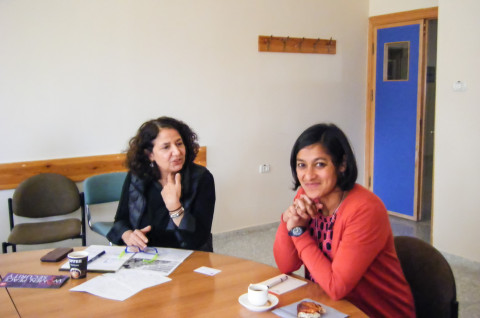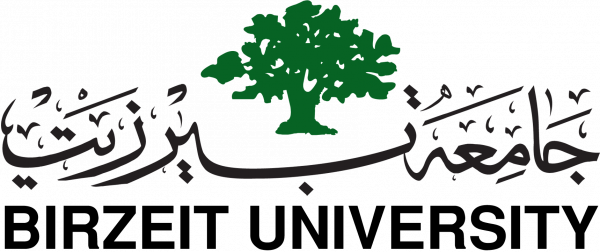
A round table on the UN resolution 1325 with Dr. Marsha Henry
March 30, 2017
The Institute of Women's Studies and Ibrahim Abu-Lughod Institute of International Studies, in cooperation with the Council for British Research in the Levant, organized a panel discussion on 30/03/2017 entitled "Critical Engagements with UN 1325 on Women, Peace and Security ". This panel is within the project “development of research and education in the political economy in the Palestinian territories “supported by the London School of Economics and Political Science.
Dr. Rema Hammami, professor of Anthropology and a member of the faculty at the Institute of Women's Studies, opened the session presenting Dr. Marsha Henry, an associate professor at the Gender Institute and deputy director of the Center for Women, Peace and Security at the London School of Economics and Political Science. Dr. Henry tackled the issues that the Center for women, peace and security focuses on, and emphasized particularly the effectiveness of UN resolution 3125 on women, security and peace. She also emphasized the importance of this resolution and its impact on women in the world, especially on women in conflict zones.
Dr. Henry pointed out that one of the reasons for the weak implementation of this resolution and its tangible ineffectiveness is the lack of funding and the absence of women from political action that obscures their influential voices. She noted that Britain has drawn up a national plan of action for women, security and peace based on the provisions of this resolution.
The roundtable was attended by a number of women activists, in addition to the director of the Institute of Women's Studies, Eileen Kuttab, associate professor of sociology, and director of the Ibrahim Abu-Lughod Institute for International Studies, Lord Habash, an assistant professor of political science. Dr. Mandy Turner, director of the Kenyon Institute in Jerusalem and Ms. Saida Al Atrash, head of the gender unit at the Ministry of Social Development attended the discussion as well. The interventions of the participants reflected the interest of the Palestinian feminist movement initially in this resolution as providing a kind of protection and empowerment for Palestinian women in the context of colonialism, and then turning it into small projects funded by NGOs that focused on specific issues such as raising awareness on Palestinian women's rights and gender-based violence. The attendees also discussed the problem of talking about the peace industry and peace talks under Israeli colonialism, and in the absence of a Palestinian state.
It is noteworthy to mention that Dr. Henry's research interests focus on three main research areas: gender and militarization, gender and development and qualitative methodologies. Over the past 10 years, her research interests have been concentrated on documenting the social experiences of living and working in peacekeeping missions. Her recent research focuses on female peacekeepers from the Global South, masculinity, intersectionality and peacekeeping and representations of sexual violence in conflict.

